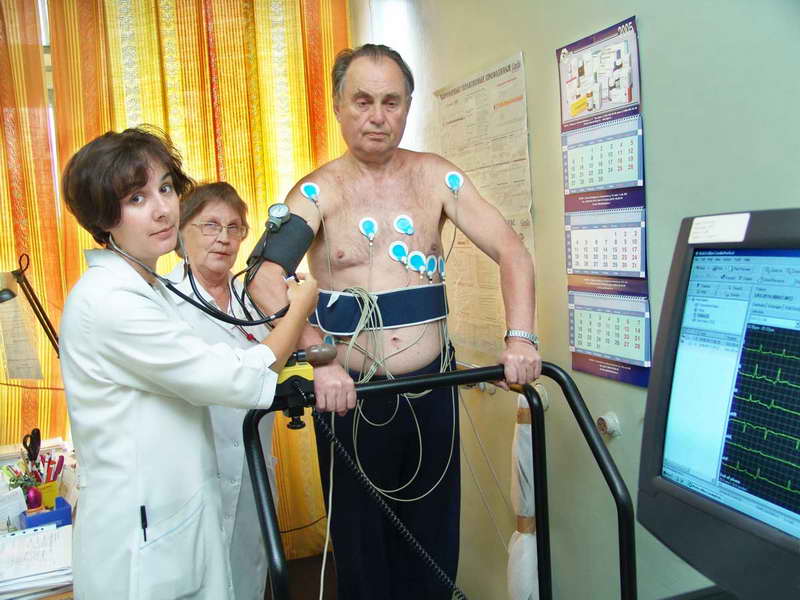In 1964, Sector of Experimental and Clinical Cardiology was transformed into the Laboratory that was headed for 23 years by Prof. I. E. Ganelina, while since 1986, by Prof. S. K. Churina. The predecessor of the Laboratory was the Therapeutical Sector of the Institute headed first by Prof. M. V. Chernorutsky (1950-1957), then by Prof. B. V. Ilyinsky (1957–1963).
Investigations of the Therapeutical Sector were carried out in cooperation with the Laboratory of the Institute headed by Academician V. N. Chernigovsky and were dealing with role of reflex influences from visceral organ receptors to the heart as well as with role of nervous factors in atherogenesis. The clinical base of the Laboratory is Pokrov Inpatient Clinic of St. Petersburg. The fundamental and clinical studies are performed on patients and experimental animals. In 1964, on the base of this Clinic, the first in Russia infarction service founded, with the intensive care and resuscitation unit to treat patients with acute forms of coronary artery pathology.
The main direction of studies involves peculiarities of coronary circulation, contractile function of myocardium, and cardiac rhythm in norm and in myocardial ischemia. Clinical observations and experimental data have made it possible as early as in the early 1960s to put forward a concept of mechanisms of development of electrical instability, the myocardium contractile insufficiency and shock in ischemia myocardium reperfusion. A part of the investigations were concentrated on peculiarities of lipid metabolism in experimental atherosclerosis and ischemic heart disease as well as on role of stress, circadian rhythms, and psychological personality features in development of the ischemic heart disease. An effect of meteo- and heliogeophysical factors on development and course of acute forms of coronary circulation disturbances was demonstrated. myocardium, and cardiac rhythm in norm and in myocardial ischemia. Clinical observations and experimental data have made it possible as early as in the early 1960s to put forward a concept of mechanisms of development of electrical instability, the myocardium contractile insufficiency and shock in ischemia myocardium reperfusion. A part of the investigations were concentrated on peculiarities of lipid metabolism in experimental atherosclerosis and ischemic heart disease as well as on role of stress, circadian rhythms, and psychological personality features in development of the ischemic heart disease. An effect of meteo- and heliogeophysical factors on development and course of acute forms of coronary circulation disturbances was demonstrated.
For the last few years, a great attention has been paid to study of effects of several exogenous factors (alimentary cholesterol, calcium and magnesium deficiency in the natural water) on formation of vascular tone and functioning of cell membrane ion-transporting systems coupled genetically with development of cardiovascular diseases. A new regulatory peptide is discovered which participates in development of arterial hypertension under conditions of calcium deficiency.
Results of the research are extensively introduced into clinical practice as well as into creation of ideology of the necessity of correction of the mineral composition of tap water in the regions in which the deficit of the main macroelements (calcium and magnesium) in the « soft » natural water represents a risk factor for development of cardiovascular pathology. Developed and patented are several mineral additions for correction of deficit of macroelements (calcium, magnesium, potassium) and microelements (iodine, fluorine) in the tap water and are aimed at the primary prevention of ecologically produced cardiovascular system diseases in the Russian Northwestern area.
The recommendations elaborated at the Institute became the basis for the City Program providing for measures of correction of deficit of macro- and microelements in the tap water in children's institution. |